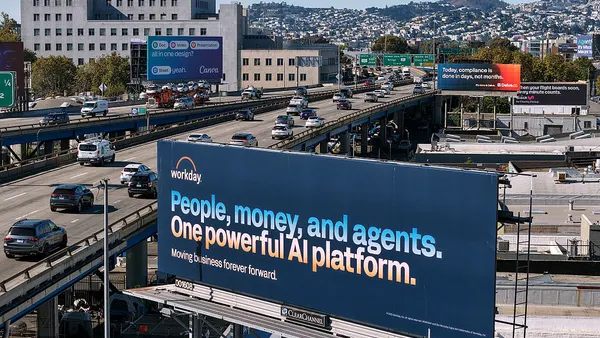While 77% of companies allow artificial intelligence tools at work, only 32% offer training, according to a July 1 report from BambooHR.
A gap is growing across organizational hierarchies, with 72% of C-suite and vice president-level executives using AI daily, compared to only 18% of individual contributors, the report found. This “birth of a new digital divide” could shift workplace power dynamics and widen gender gaps, BambooHR warned.
“Leaders need to develop clear and comprehensive AI policies that not only outline what’s acceptable but also address the elephant in the room — the fear that using AI is somehow ‘cheating,’” said Alan Whitaker, head of AI at BambooHR. “When we communicate these policies clearly and transparently to all employees, we can help alleviate concerns, promote a culture of openness and empower our teams to harness the full potential of AI.”
The survey of more than 1,500 full-time U.S. employees who work a desk job, including 500 HR professionals, found that half of managers and senior leaders receive AI training, compared to 23% of individual contributors.
Compared to individual contributors, more than twice as many executives said they’re creating efficiencies at work by using AI to write emails, develop presentations and complete other tasks. In addition, 80% of senior leaders viewed AI-assisted work as high quality, compared to 69% of managers and 28% of independent contributors.
Although 72% of employees said they want to improve their AI skills, only about a third have received formal AI training from their employer, the report found. Even so, 61% of executives said they value employees who use AI more.
Job seekers say there’s a training gap, rather than a skills gap, when it comes to hiring — and that employers are passing over competent candidates because they aren’t willing to train them, according to an Express Employment Professionals report. Most candidates said companies should increase investments in learning and development.
Without additional training, 9 in 10 companies lack “future-ready” talent strategies related to AI capabilities, according to a report from The Adecco Group. To better prepare, employers can implement structured plans to build skills, support employees and lead the workplace through AI-related disruption, the firm said.















